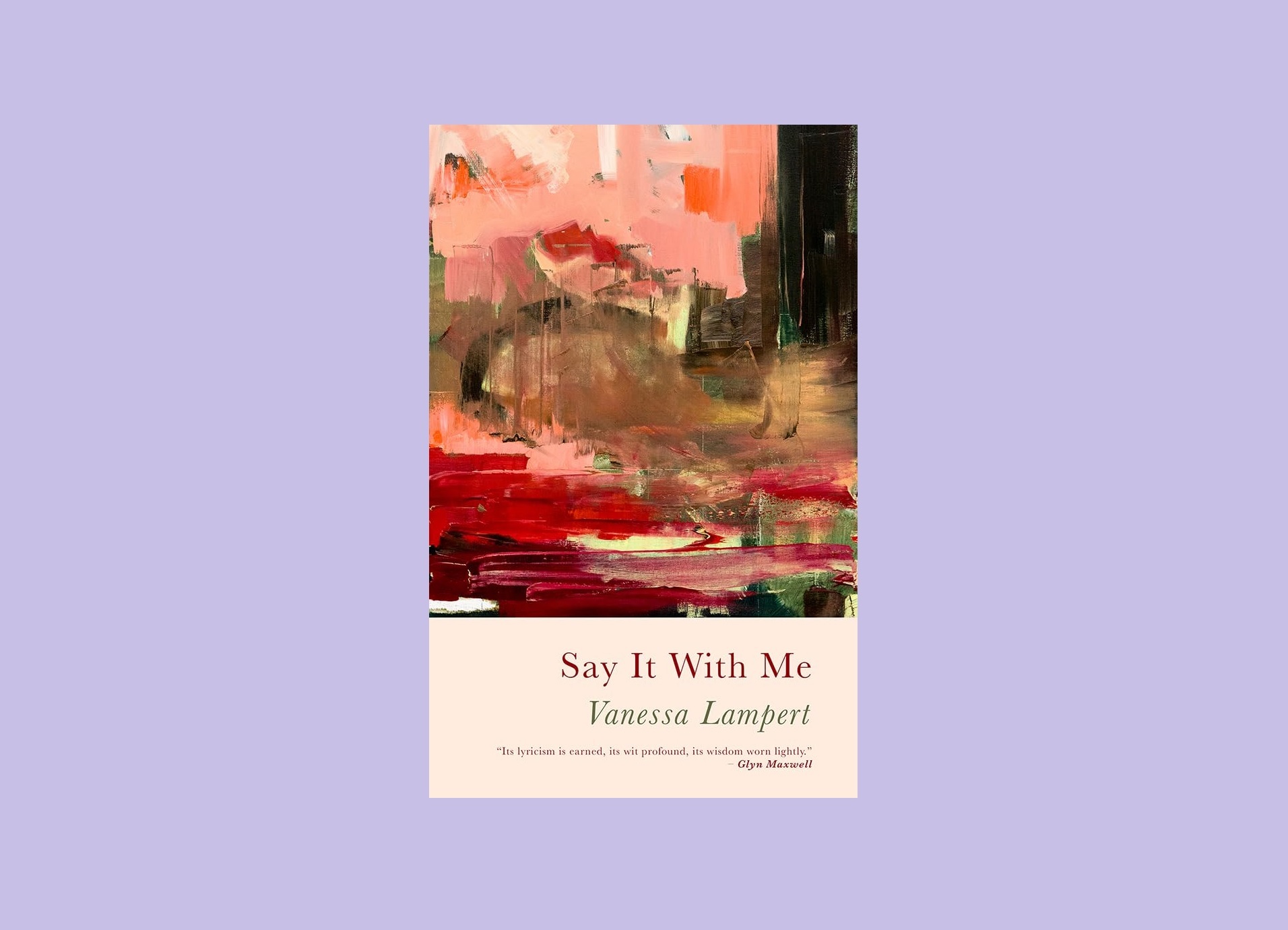Christopher Horton
In Say It With Me (Seren, 2023), Vanessa Lampert’s poems, at first, immerse themselves in familial, domestic subject matter before revealing darker themes underlying everyday routine.
By way of example, in ‘Halloween’, a visit to her ailing stepfather, and a shared joke with him, infers uncertainty in relation to the speaker’s historic relationship with this man: “Then he laughs and forgiveness / is in the room, like the light from the last / candle on a birthday cake you didn’t / have enough breath to blow out.” Why is forgiveness needed in this moment? We are left pondering the true nature of the relationship and the way in which not having ‘enough breath’ can be interpreted in different ways when related back to the stepfather who has a covering over his eye and all the “colours of hurt” behind it. It is the need for the joke and its unexpected impact, masking trauma perhaps, that is of interest here, not the joke itself.
Another way in which Lampert brings the commonly unsaid into meaning, is through descriptions of joint action and rebuilding as, for example, in ‘Margate in September’, where the digging of a sandcastle moat is a method for group catharsis. The knowledge that the boy in the poem, who first builds the sandcastle, is the son of the poet’s brother who committed suicide only lends gravity to importance of the joining together that leads to the realisation of the “marvellous thing we finished”.
Throughout the collection, the poet confronts pain through forgiveness and compassion, but this can make her vulnerable to others’ intentions also. In ‘Likes You’, the speaker wants a kind of affirmation for these qualities from the person that used to pick on her at school. This reveals an instinct that may have led to the bullying in the first place: “And what you want to happen / is the miracle where you take the needles out / and she stands up pain free, and likes you.”
In ‘Still Life with Story’, she writes birdsong always stays “hopeful in dreams”, but it is the final image in the same poem that holds us in that moment by mixing both direct language and the language of poetic illusion:
He washed his body for a long time
then ironed his clothes.
He walked up the lane with his dog and took
his own life. The sky above him went pink
then red, then it turned towards morning.
Curiously, this turning away of the sky itself towards morning suggests continuity and finality at the same time. Death cannot prevent the passage of time and yet distils and replays the single moment when it came to pass in detail in this poem.
There is, though, a release from sadness in these poems, always a movement towards light. In ‘When you are King’, a rediscovered football card of the World Cup-winning goalkeeper Gordon Banks brings back into focus the speaker’s brother mediated through Bank’s heroic image. The Gordon Banks motif, rather than being a way to pre-set her brother’s own legacy, acts as a totem of continuity: “a small boy will find you. He’ll say this man is king, and he’ll save you.” Indeed, Lampert’s poems commonly instil a belief in the reawakening spiritual possibilities that life can bring even during adversity and loss. As such, it is not death that wins-out but continuity and natural beauty. In ‘What the Horses Told Us’, the apple-eating horses seem to have an innate understanding of this fact, potentially beyond the limits of our own human comprehension: “They knew / that nothing greater touched this earth.”
This is Lampert’s first full collection and yet underlying all of the poems is a strong and accomplished voice that has the ability to turn despair into hope, reacquainting the reader with those things they may have themselves lost. She is an expert technician, able to catch the reader unawares in as much as enlightening moments frequently come amidst a personal or collective tragedy that is seemingly irredeemably bleak. Lampert’s work is always seeking connection to those things that make us sensory and, ultimately, human, with all the vulnerabilities and strengths that this condition entails. She is also a poet that knows it is the details of the domestic and everyday which hold the greatest value and that enable us to get through, to rebuild.
